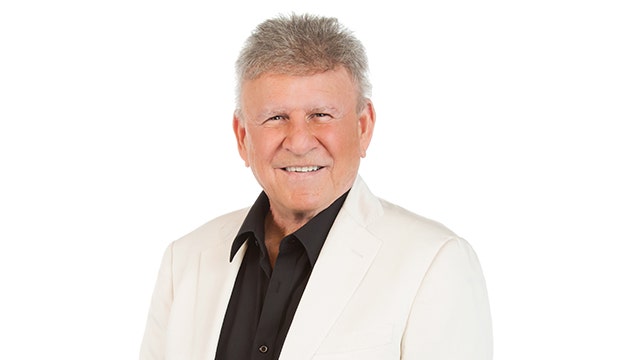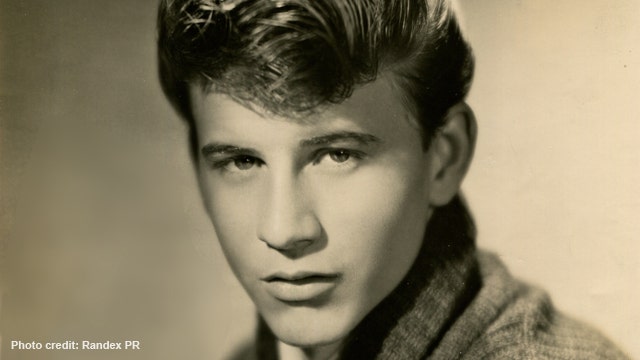Fox News Flash top entertainment headlines
Fox News Flash top entertainment and celebrity headlines are here. Check out what clicked this week in entertainment.
It has only been three weeks since the death of Bobby Rydell at age 79 due to the effects of pneumonia. However, few will be hard-pressed to know the former 1960s teen heartthrob, known for the songs "Wildwood Days" and "Volare," has shared a deep connection with a young lady in Philadelphia for nearly a decade.
Rydell, born Robert Ridarelli, and Assiah Phinisee, share a portion of a liver that each of them received as transplant recipients on July 9, 2012, when Assiah was just four years old.
Now, approaching her 14th birthday on May 9, Assiah’s mother, Rasheena Phinisee – pronounced "like Tennessee" – said Rydell’s death came as a shock to her and primary liver recipient Assiah, and that her thriving young daughter had to center herself before publicly addressing Rydell’s passing.
"It came as a real shock to us when we learned of the news, and it really took a few days for us to kind of process it all because this year would have been 10 years with their transplant anniversary, which is a big deal," Rasheena told Fox News Digital.
She continued: "It's a milestone to really celebrate. So, we were a little upset. It took us a couple of days to process it before we finally said something publicly. But Assiah was definitely taken aback, you know. She dropped a few tears when I let her know. But like I told her, he's lived a very long life. He would've been 80 this year."
BOBBY RYDELL, ’60S TEEN IDOL AND 'BYE BYE BIRDIE' STAR, DEAD AT 79
In their tribute post to "Bye Bye Birdie" star Rydell, Assiah and her mother wrote on social media in part, "We’re going to miss our dinner dates and visits with you. Words can not express how grateful we are to have gained a family through our donor."
"It came as a real shock to us when we learned of the news, and it really took a few days for us to kind of process it all."

It has only been three weeks since the death of Bobby Rydell at age 79 due to the effects of pneumonia. However, few will be hard-pressed to know the former 1960s teen heartthrob, known for the songs "Wildwood Days" and "Volare," has shared a deep connection with a young lady in Philadelphia for nearly a decade. (Assiah's Liver Fund/Getty)
July 4 will also mark 13 years since Assiah's first-ever liver transplant. She's had two in her lifetime so far.
Assiah began experiencing the debilitating effects of biliary atresia – a blockage of the ducts that carry bile from the liver to the gallbladder and intestines, and when trapped in the liver, creates scar tissue that causes cirrhosis and eventual liver failure.
Currently, Rasheena and her daughters are traveling nearly five hours away to Pittsburgh, Pennsylvania to get Assiah her transplant care after a dispute in 2018 over the effectiveness of a prescribed trial drug.
For Rasheena, a woman who began studying public relations at Temple University before putting her own dreams on hold to tend to her daughter’s long-term care, many tribulations she and Assiah have endured have shifted her entire focus in life.
In 2016, Rasheena graduated from Temple University with a bachelor’s of arts in Communications after dropping out in 2008 following the birth of Assiah.
BOBBY RYDELL, 1960S TEEN IDOL, UNDERGOES DOUBLE TRANSPLANT
Still, while pouring every ounce of energy she has into Assiah’s care, Rasheena has been dealing with her own health battle – one that only aided in helping Rasheena realize that her life’s circumstance "is for the greater good" of humanity after being dealt a breast cancer diagnosis in January just 10 months after giving birth to another daughter.
"Each day is a present, literally," Rasheena said of the day-by-day willpower she maintains in not only raising two daughters as a single mother but combating the ill effects of not only Assiah’s liver condition but her own health struggles – invasive ductal breast cancer with metastasis of the nearby lymph nodes.

Rasheena Phinisee's daughter Assiah, right, shares a portion of her liver with the late 1960s teen idol Bobby Rydell. (Courtesy of Rasheena Phinisee)
"It's so funny that you asked that because I just was talking to someone not so long ago, explaining to them about when you're faced with hardships that include struggles with health and I told them even when Assiah did get better after the first transplant and life was normal, because we had been through so much medical trauma for so long, it took years for me to emotionally and psychologically come out of the place where we had been," Rasheena said.
"We had spent years of holidays in the hospital, years of family gatherings and different gatherings in the hospital, so when things were normal at home, my mind mentally and emotionally wasn't there for years because all I could think about on those days were the bad things until there was enough time between our experiences and our past that I could actually embrace that it was safe to live in the moment and enjoy those moments," Rasheena added.
BOBBY RYDELL SAYS A FAMOUS 'MOB FIGURE' GOT HIM OUT OF A CONTRACT
Rasheena said it was Assiah’s reaction to her mother’s breast cancer diagnosis that ultimately brought Rasheena back down to earth as now it was Assiah, who was mustering the strength to serve as a support system to her mother.
"I think for the last decade, we've gotten so comfortable with life being so normal that when January of this year hit, and I was diagnosed with breast cancer, my daughter Assiah took it really hard," Rasheena lamented. "She's doing better now, but the first couple of weeks, she just was like, 'Life is not fair. I don't understand why we keep getting hit with things and why we just can't ever have an opportunity to enjoy our lives,’ because she was really fearful."

Rasheena Phinisee and daughter Assiah. (Photo by Greg Johnson/Courtesy of Rasheena Phinisee)
Despite the cancer diagnosis, Rasheena is a published children’s author along with her daughter and still operates Assiah’s Liver Fund, an award-winning nonprofit dedicated to organ donation awareness.
For the last decade, we've gotten so comfortable with life being so normal that when January of this year hit, and I was diagnosed with breast cancer, my daughter Assiah took it really hard.
'THE HOME EDIT' STAR CLEA SHEARER REVEALS 'AGGRESSIVE' BREAST CANCER DIAGNOSIS
She has also since become an advocate for every woman not only getting checked for breast cancer regularly but heightening their epidemiology insight in order to mitigate determinants and variables associated with cancer and other health ailments.
"Everything we continue to deal with regarding Assiah’s health and what I’m dealing with breast cancer-wise, when the diagnosis came, it never dawned on me the impact that breast cancer has on the African-American community – how we are two times more likely to die from breast cancer than that of a White woman," Rasheena explained.
USA OLYMPIAN ENCOURAGES ROUTINE MAMMOGRAMS DURING BREAST CANCER AWARENESS MONTH

July 4 will mark 13 years since Assiah's first-ever liver transplant. (Courtesy of Rasheena Phinisee)
Rasheena said her breast cancer diagnosis cut her breastfeeding journey with her newborn short by seven months. She is also nearly finished with a chemotherapy regimen that while debilitating to complete, she says has opened her own eyes to the inconsistencies certain groups of people face when it comes to receiving optimal medical care.
Last week, Rasheena completed her fourth chemotherapy infusion and now has only two more left before she moves on to surgery, radiation and targeted immune therapy for six months.
CLICK HERE TO SIGN UP FOR OUR ENTERTAINMENT NEWSLETTER
"It never dawned on me how with organ failure, Black people are two times more likely to be afflicted by these ailments. And as you're learning these things while you're having this experience, and you're taking this walk through life, you find that you're compelled to connect with other people and share information with people that had you not been afflicted by those situations, you would have never imagined in your life were things that actually exist."








